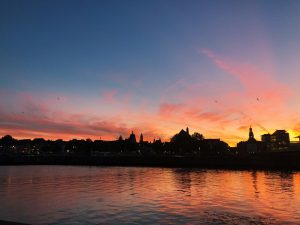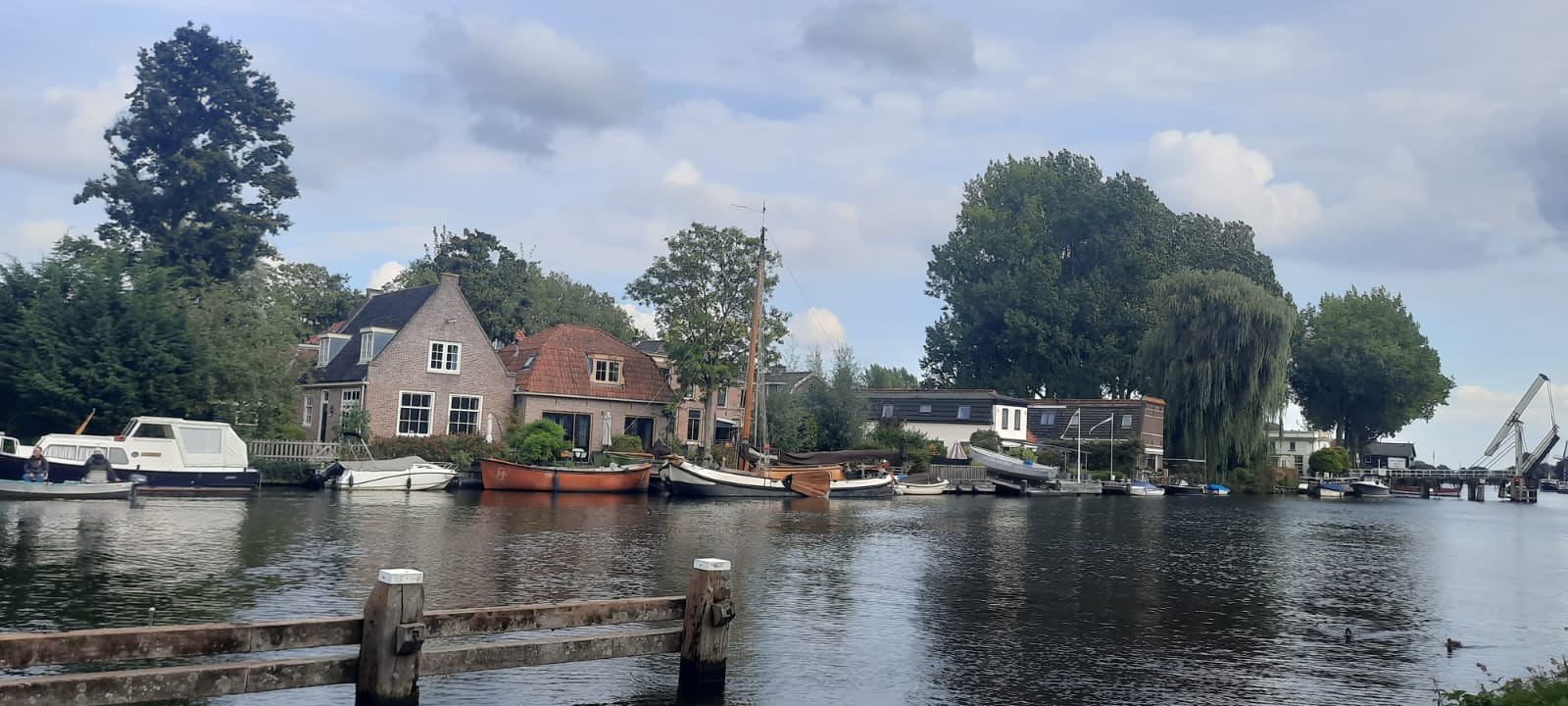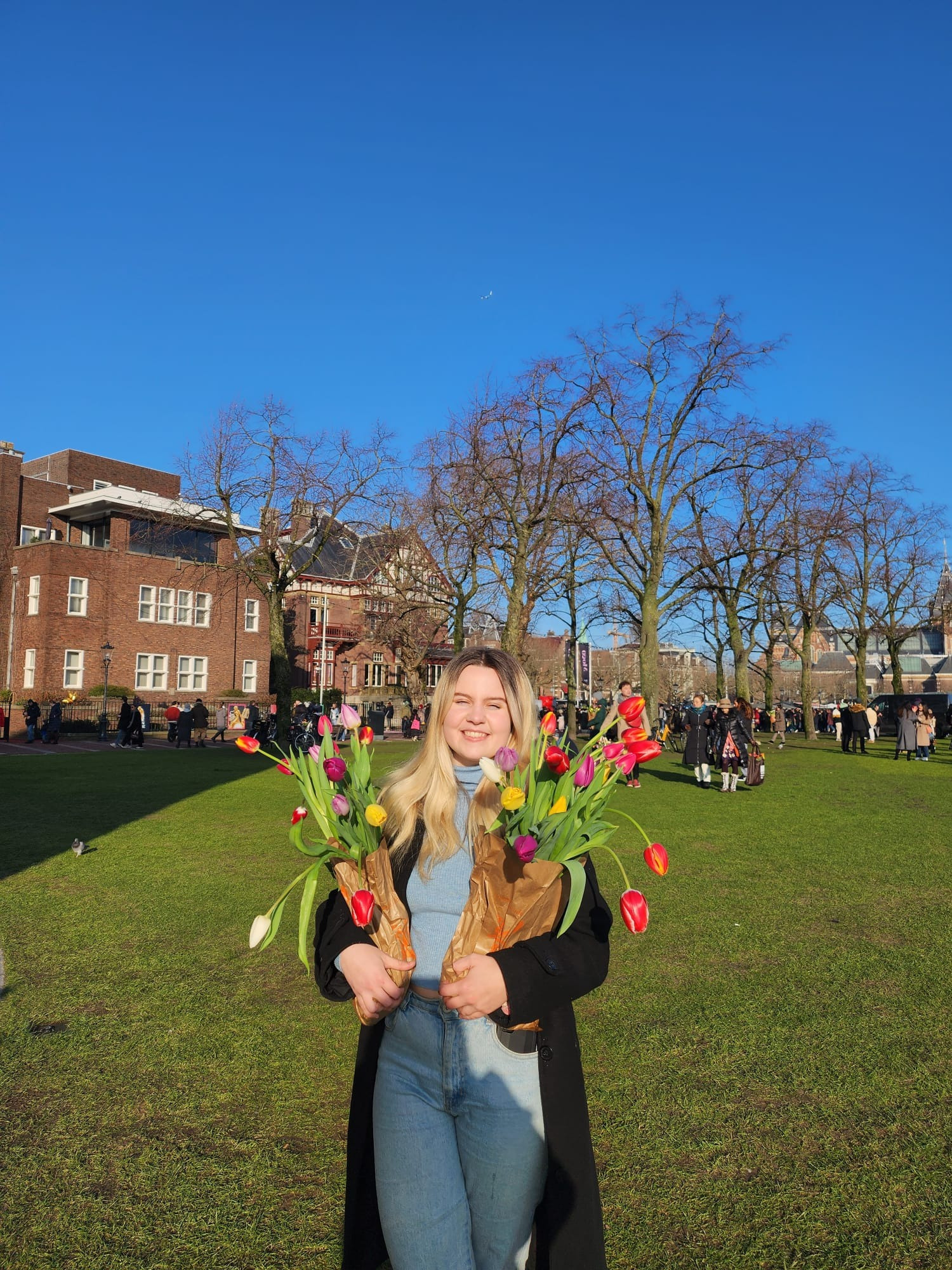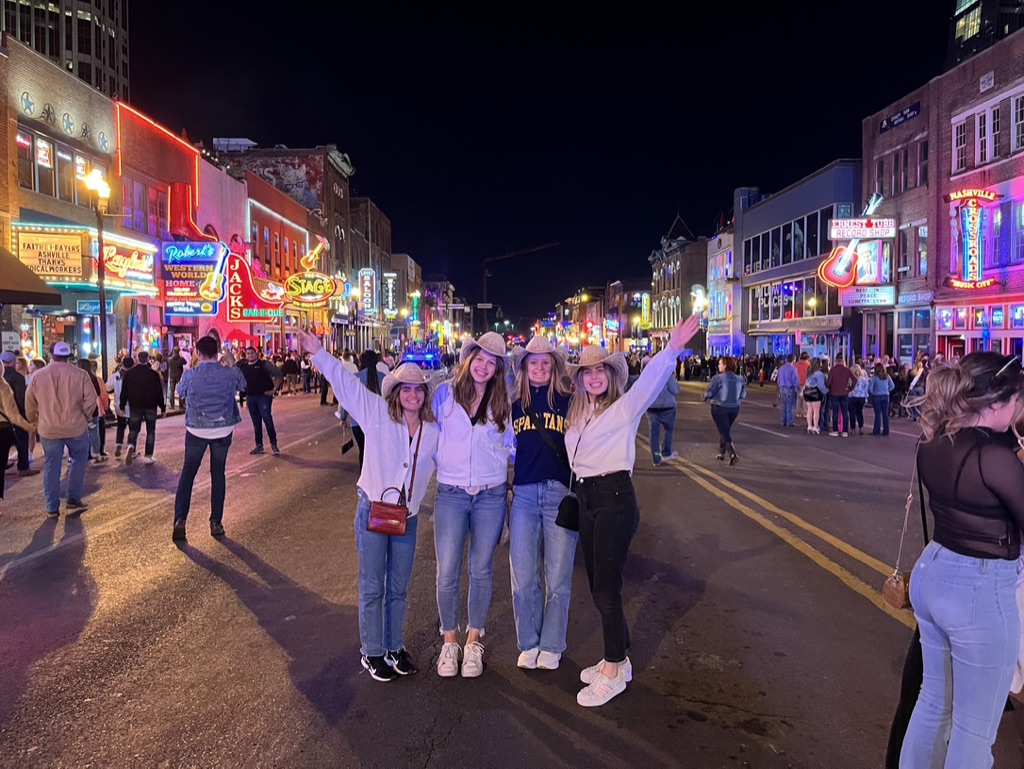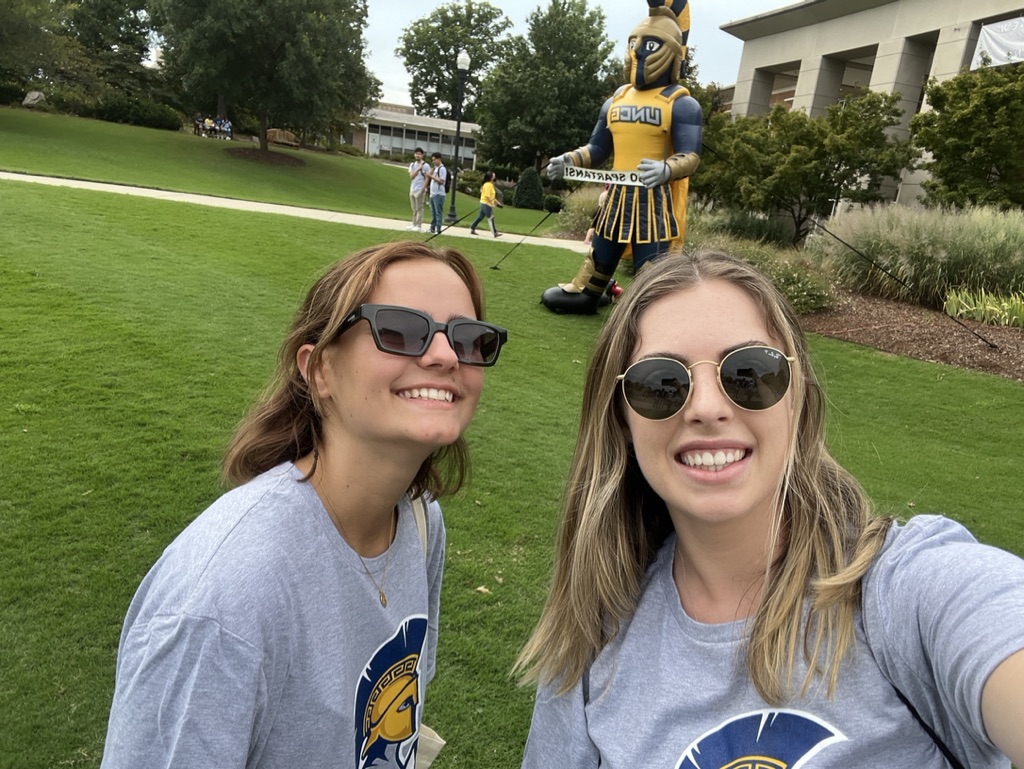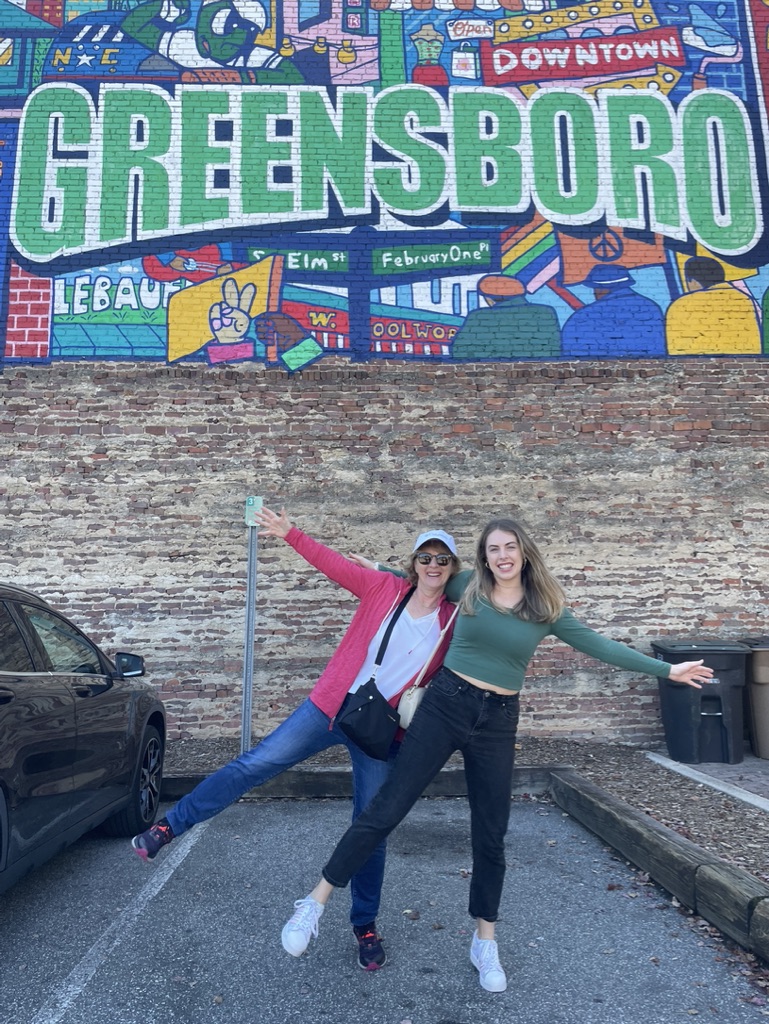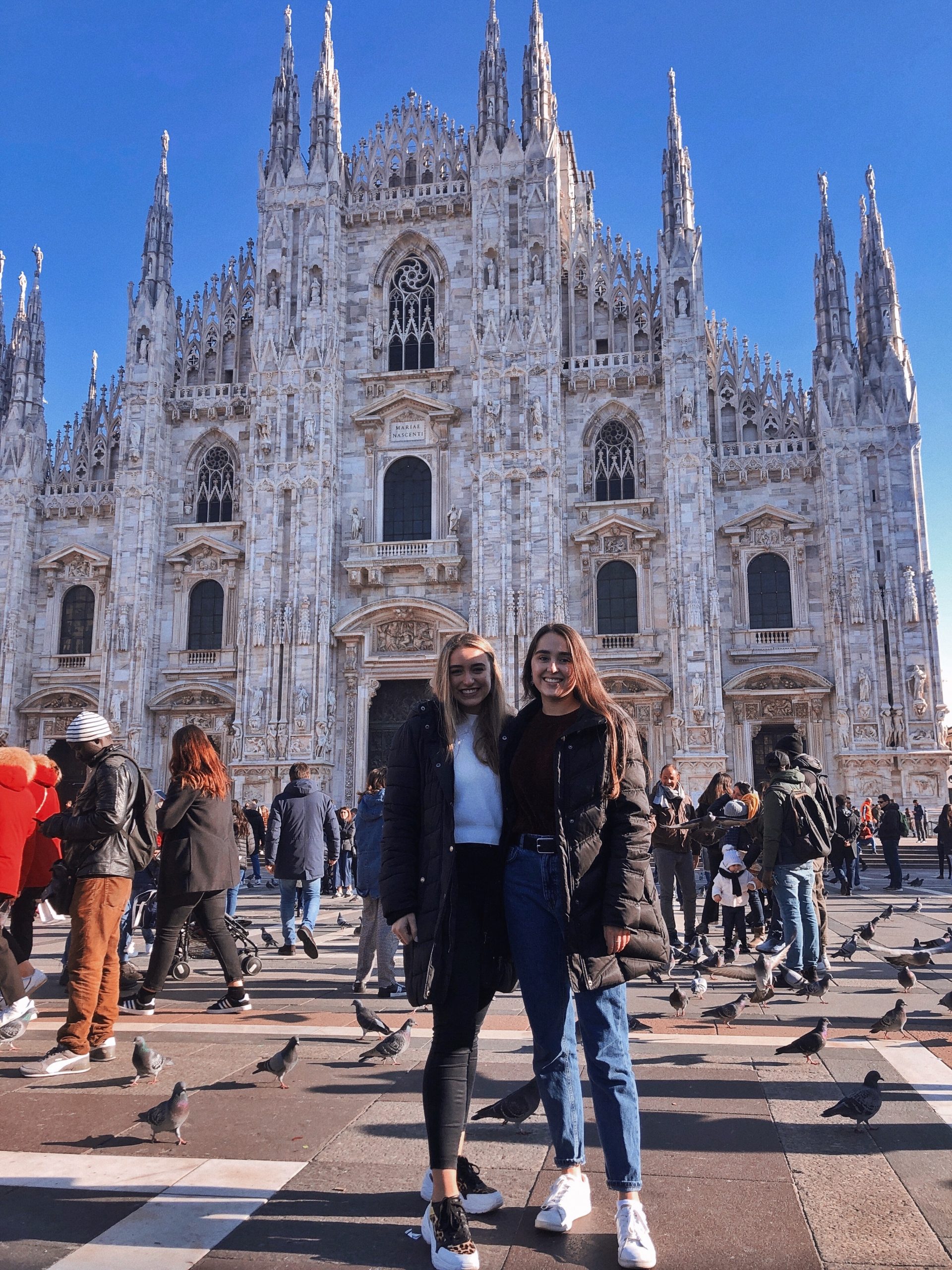Pre-departure:
The exchange semester included in BCom International Business is one of the most attractive features of the degree. So when exchange finally approached, to say I was a tangled mess, feeling both excited and overwhelmed, is an understatement! After careful consideration and many late nights doing research into each available institution, I had eventually felt lead to Maastricht University in the Netherlands. This was largely due to their renowned international orientation and progressive Problem Based Learning (PBL) education system and, if I’m being honest, its prime location for traveling in Europe.
I was pleasantly surprised (and relieved) by the level of organization and communication from Maastricht University. Once our nominations went through from Stellenbosch, I was contacted by Maastricht almost immediately with a detailed PDF on how next to proceed. They essentially held my hand and guided me through the entire process – applying for housing, applying for my residential visa, setting up my university profile and registering for my courses – and were both quick and happy to respond to any queries that I emailed to them.
Approximately 50% of Maastricht University’s student body is comprised of international students and they offer an extensive exchange program, and it truly shows. The university organized housing for me and provided me with a housing scholarship; they prompted me regarding the necessary documents for my residential visa as they did the application through their in-house visa office; and my email inbox was filled to the brim with relevant PDF documents that pre-empted all my many questions and also made sure I knew the ins and outs of all the academic (and social) life at Maastricht… I was never at a loss for information and assistance.
And while it was relatively smooth sailing because of Maastricht’s hands-on approach, that’s not to say there weren’t a couple of hiccups on my side. I received an email to say that my long-stay visa was ready for collection, but when I arrived to collect it from the embassy in Pretoria, they had no record of my application! Long (and stressful) story short, the university does the application for you on their side, however you still need to book an appointment to apply for the document collection in South Africa too. At this appointment, you are required to hand in your passport, so while the turnover time is relatively quick, allow some time for that. Apparently the wording of the email is misleading and the embassy is in the process of adjusting it, so I took some small comfort in the fact that I was amongst many other people who had made the same mistake!
Nevertheless, the level of professionalism, efficiency and clear communication from the university put my (and both my parents’) minds at ease. I am so grateful for the impressive organization of their international department, since it truly allowed me to enjoy the excitement (and bypass a lot of the pre-departure admin stress) in the time leading up to my departure.
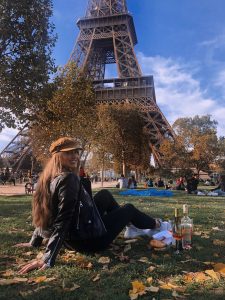
Experience at Host University:
Maastricht’s Problem Based Learning system is a major drawcard to the university. So I approached the academic aspect of my exchange semester with a mixture of apprehension and intrigue. Having grown accustomed to the Stellenbosch education system, in which it is easy to disengage from the work when you sit in a lecture hall of hundreds of students, the interactive PBL system required some adjustment.
I quickly learnt that the system is one that demands a lot of time and effort from the students. I attended weekly classes that took the form of interactive tutorials with 10 to 15 people, had extensive lists of articles to get through and self-prepare ahead of each tutorial, had to facilitate and lead the discussion on several occasions, and was required to participate in numerous group projects. Simply put: it was a lot of hard work and the responsibility for your learning falls squarely on your shoulders.
However, it was the most captivated and engaged I’ve ever been with university content (and, therefore, the most prepared I’ve felt when it came to exams). I took a range of subjects including Comparative Management, Globalization Debate, Brand Management and Management of Organizations, and finally ended my semester with a practical term on Presentation Skills (which was a leap out of my comfort zone that ended up being so rewarding). The tutorials are monitored by tutors (usually Masters students) who do not participate in the discussions, unless they intervene to clarify a concept. Therefore, we learnt through discussing and debating amongst ourselves, so I quickly learnt to find my voice, formulate informed opinions and open my mind to the many different perspectives of students from all over the world. This system of engaging with one another also meant I was no longer an anonymous exchange student engulfed in a large lecture hall. It gave me so many opportunities to meet people and get to know one another and I made some of my best friends on exchange through tutorials together.
Another attractive feature of Maastricht University is its strong international inclination. With a diverse student body, many exchange programs and internationally-oriented academic and research content, I was never the “outsider” as an exchange student. Meeting people from different countries was the norm and varying perspectives and experiences from all different parts of the world were embraced. I honestly appreciated this component of my exchange. It was enlightening to make internationally-diverse friends, comforting that the university makes all provisions for exchange students, and it also meant that there was no real language barrier since English was the common language of communication.
This demography extends into the city itself. Maastricht, being on the border of Belgium and Germany, is internationally-diverse and is truly student-oriented with the campus extending all across the city (much like Stellenbosch). My attachment to the city happened very slowly at first, and then seemingly all at once it began to feel like home when I would return from traveling in Europe.
When I wasn’t preparing for tutorials or working in groups on projects, I would take every opportunity to travel. This was the dream of so many of us: embracing the academic opportunity that exchange provides, but also taking full advantage of the privilege that it is to travel and have diverse cultural experiences. I spent most weekends traveling in the Netherlands, to Belgium, France, Germany, Italy, Switzerland and Spain, either meeting up with fellow Stellenbosch students on exchange or with newfound international friends. As many of us agreed upon our return: the lows were low, but the highs were really high. And these opportunities and memories were the experiences that made all the physical, emotional and admin challenges of exchange worth it.
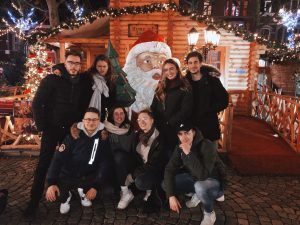
Return to Stellenbosch:
As I mentioned before, the adjustment to exchange happened very slowly at first, and then suddenly all at once. Honestly, the first couple of months were lonely.
And they were filled with so many embarrassing stumbles as I navigated public transport (even more so when attempting this with luggage!), staring at prices trying to convert euros to Rands (pro-tip: don’t do it to yourself), initiating conversations with total strangers, and navigating icy, rainy weather conditions.
But upon my return to South Africa, I realized that those “lonely” moments became moments of introspection, re-evaluating myself and my aspirations (plus, those lonely moments didn’t last forever and the friends I made were worth the wait).
And those “embarrassing” moments just broke down some of my defense mechanisms, and I slowly learnt that it was okay not to have everything figured out and that sometimes all I needed to do was be patient with myself (and, more often than not, just to laugh at myself). These lessons were so empowering and I’m holding on tightly to the person that I grew into upon my return.
The return home was an unexpected adjustment. I expected a sense of relief that comes with the familiarity of home, and comfort in knowing how things work and the norms of South Africans in general. And that was present to some extent, but I struggled to reconcile that while seemingly nothing had changed in my external home environment, so much had changed within me. Almost everything felt conflicted. I felt frustrated with the apathy that characterizes so much of South African infrastructure, because I was so impressed by the self-discipline, efficiency and integrity that made up so much of the Dutch culture. And yet, for all the productivity and straight-forward communication of the Dutch, the beauty of our country and the open warmth and friendliness of South Africans is unparalleled. When I landed at OR Tambo International upon my return, the man at passport control told me “welcome home”. I may have shed a tear or two. And I could write an entire blog post dedicated to the natural beauty of our country, and my renewed appreciation for it.
While I learnt that traveling is the most enriching experience and prompts so much personal growth, I also learnt that South Africa is home. And a beautiful one. My future plans definitely include traveling. In what capacity, I’m not sure yet, but I do know that I will grab any chance that enables me to travel, pushing back my personal barriers and experiencing diverse cultures. And then I will return home to South Africa at the end of every venture.
Ultimately, exchange is an opportunity I would recommend to everyone. It puts everything into perspective when your world is expanded in that way, both externally and internally. Exchange prompted much introspection, invaluable lessons on independence and self-reliance, re-evaluating my plans for the future and also opened me up to a network of people all across the world. I will always be grateful for these invaluable outcomes and, most of all, grateful that exchange was the catalyst for my pursuit of the person I am growing into.
